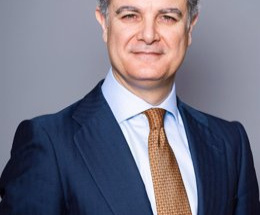A little over a week after the presentation of the highly anticipated the recommendations of Jean-Paul Delevoye on the pension reform, the prime minister said this Friday, July 26 calendar of work on this topic for the months to come. The opportunity to make a point about the next steps of the reform.
● Step 1: mid-July, Jean-Paul Delevoye has presented its reportThursday 18 July, the high commissioner to the pension Reform, Jean-Paul Delevoye, has finally submitted its tracks for the conversion to a point system, where 10 € will give the right to a point, which will pay 0,55 euro gross pension per year at the full rate. The Fruit of eighteen months of consultation, the document proposes to establish an "age of balance" at 64 years of age from the generation born in 1963, of "points of unity", a supplement for every child and the end of special diets.
" READ ALSO: Retirement: Jean-Paul Delevoye, a "pro" for the operation in the last 18 months
For the moment, it is, however, that the proposals: there is no indication that the government will keep them in the state, which explains why the final presentation of the draft law remains scrutiny. "These recommendations, handed to the prime minister, are the proposals made by Jean-Paul Delevoye and are subject to debate," explain the services of the high commissioner.
● Step 2: a listening phase with the social partners to the suite of recommendationsAs promised by Édouard Philippe, Jean-Paul Delevoye was launched just after the presentation of its recommendations in a dialogue with the social partners. Objective: to collect their grievances and cleared the ground for the next steps of the reform. In the same spirit, the former minister of the public Service was also presented to the members of the committee on social Affairs of the national Assembly on Wednesday 24 July, defending its trade-offs.
Among the unions, Force ouvrière and the CGT have already indicated their disagreement with the tracks put forward by the high commissioner. "To live almost, it should go to 64, 65 years old, or even a little more," said Philippe Martinez, who saw in this reform a lot of smoke," as well as an "unequal system". His counterpart, FO, Yves Veyrier, is concerned about his side for the trades painful.
" READ ALSO - Pensions: the Court of auditors, curry once again special diets
For its part, the CFDT is more measured: in an interview in Figaro , the leader of the first union of France, Laurent Berger, said he was open to negotiation with the executive, explaining that his organization "would do everything to be [listened]". While drawing a red line: if the dialogue fails, "there will be no reform accepted by the CFDT," it warns.
The board seems to agree with the changes proposed by the high commissioner. The Medef "will support the main principles of this reform", which will "offset some of the careers chopped or irregular. The union will remain "vigilant and attentive in the course of the consultations".
● Step 3: the social partners received the prime minister's office on 5 and 6 September, the unions, the protesters mobilizedthe other side of the consultation will begin on 5 and 6 September. Matignon announced this Friday, AFP, that the prime minister would receive on those dates by the social partners to "build the method and timing of consultation" of the reform. Trade unions and employer Organisations will be playing for "bilateral meetings" around the prime minister, the minister of Health Agnès Buzyn and Jean-Paul Delevoye. The government will consider with the social partners on the sticking points of the report Delevoye, as the concept of the age of balance, the rate of the discount and premium associated with 64 years of age, or the planned end to special regimes that benefit certain types of jobs. The citizens should also be included in the discussion, without the terms and conditions of this participation are not yet known.
" READ ALSO - Pensions: the Court of auditors, curry once again special diets
a Few days later, the trade unions opposed the reform will attempt to mobilize - separately, however, to make pressure on the government. Force ouvrière, which has "decided to suspend his participation in these consultations" as long as the project of the couple executive has not been clarified, has called for a rally in Paris on 21 September. Same sound of bell on the side of the CGT, which organizes the response three days later, on 24 September.
● Step 4: a presentation to the Council of ministers is expected by the end of the yearThe executive has shifted its plans. Up here, Edward Philip called for a presentation of the draft law by the council of ministers "at the end of the summer." A maturity which has then not been recalled, and that seems to have been abandoned: the consultation muscular that announcement as well as the difficult trade-offs that will make leave doubt as to the precise period of the formalization of the draft law. At the end of June, the minister in charge of Relations with the Parliament, Marc Fesneau, indicated that the document would be disclosed "at the horizon" of the end of the year: "we have other texts" to consider at the outset, he said, as the draft law on bioethics and the LDCS or the budget 2020.
● Step 5: the parliamentary debate after the municipalIn this context, the text should not be discussed in Parliament before the next municipal elections, which will take place on 15 and 22 march 2020. A election major that the majority LREM doesn't see disturbed by the folder the more explosive of the quinquennium.
Date Of Update: 28 July 2019, 00:00












